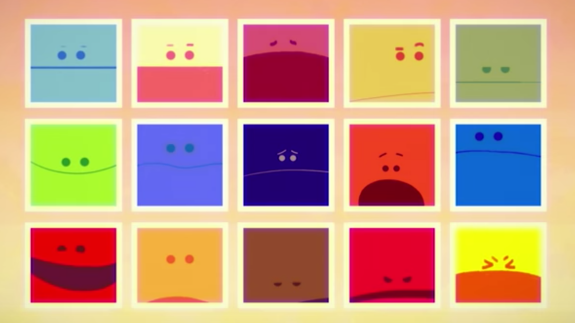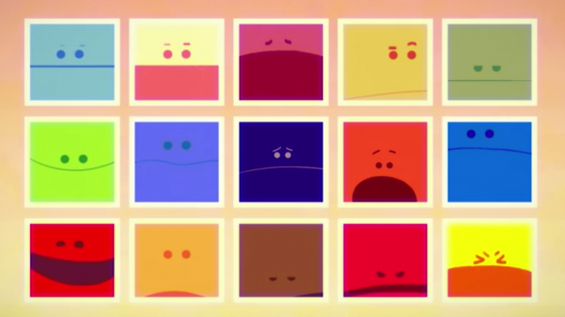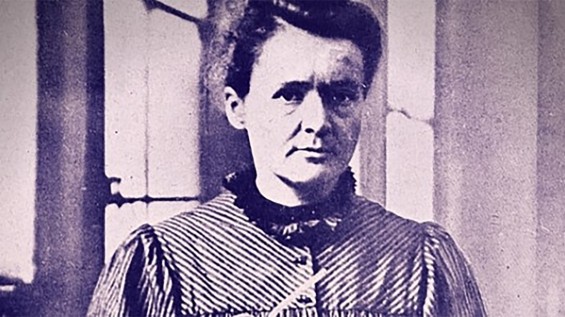
Should emotions be taught in schools?
Who taught you how to identify and manage your emotions, how to recognize them when they arose, and how to navigate your way through them? For many adults, the answer is: No one. You hacked your way through those confusing thickets on your own. Although navigating our inner landscape was not something that was taught to us in school, it should be, contend a number of researchers. They believe emotional skills should rank as high in importance in children’s educations as math, reading, history and science.
Why do emotions matter? Research has found that people who are emotionally skilled perform better in school, have better relationships, and engage less frequently in unhealthy behaviors. Plus, as more and more jobs are becoming mechanized, so-called soft skills — which include persistence, stress management and communication — are seen as a way to make humans irreplaceable by machine. There has been a growing effort in American schools to teach social and emotional learning (SEL), but these tend to emphasize interpersonal skills like cooperation and communication.
Kids are often taught to ignore or cover over their emotions. Many Western societies view emotions as an indulgence or distraction, says University of California-Santa Barbara sociologist Thomas Scheff, a proponent of emotional education. Our emotions can give us valuable information about the world, but we’re often taught or socialized not to listen to them. Just as dangerous, Scheff says, is the practice of hiding one emotion behind another. He has found that men, in particular, tend to hide feelings of shame under anger, aggression and, far too often, violence.
How does one go about teaching emotions? One of the most prominent school programs for teaching about emotions is RULER, developed in 2005 by Marc Brackett, David Caruso and Robin Stern of the Yale Center for Emotional Intelligence. The multiyear program is used in more than 1,000 schools, in the US and abroad, across grades K-8. The name, RULER, is an acronym for its five goals: recognizing emotions in oneself and others; understanding the causes and consequences of emotions; labeling emotional experiences with an accurate and diverse vocabulary; and expressing and regulating emotions in ways that promote growth.
As a strategy, children are taught to focus on the underlying theme of an emotion rather than getting lost in trying to define it. When an emotion grips you, explains Stern, understanding its thematic contours can help “name it to tame it.” Even though anger is experienced differently by different people, she explains, “the theme underlying anger is the same. It’s injustice or unfairness. The theme that underlies disappointment is an unmet expectation. The theme that underlies frustration is feeling blocked on your way to a goal. Pinning down the theme can “help a person be seen and understood and met where she is,” says Stern.
RULER’s lessons are woven into all classes and subjects. So, for example, if “elated’ is the emotional vocabulary word under discussion, a teacher would ask students in an American history class to link “elated” to the voyage of Lewis and Clark. Instruction reaches beyond the classroom, too; kids are prompted to talk with their parents or caregivers about when they last felt elated. Researchers at the Yale Center for Emotional Intelligence has found RULER schools tend to see less-frequent bullying, lower anxiety and depression, more student leadership and higher grades. So why isn’t emotional education the norm rather than the exception?
Surprising fact: While scientists and educators agree on the need to teach emotions, they don’t agree on how many there are and what they are. RULER’s curriculum consists of hundreds of “feeling words,” including curious, ecstatic, hopeless, frustrated, jealous, relieved and embarrassed. Other scholars’ lists of emotions have ranged in number from two to eleven. Scheff suggests starting students out with six: grief, fear, anger, pride, shame and excessive fatigue.
While psychology began to be studied as a science more than a century ago, up to now it has focused more on identifying and treating disorders. Scheff, who has spent years studying one taboo emotion — shame — and its destructive impact on human actions, admits, “We don’t know much about emotions, even though we think we do, and that goes for the public and for researchers.” Or, as Virginia Woolf so beautifully put it, “The streets of London have their map; but our passions are uncharted.”
Parents can start to encourage their kids’ emotional awareness with a simple prompt “Tell me about some of your best moments,” a phrase Scheff has used to initiate discussions with his university students. But he and Stern agree that schools can’t wait until academics have sorted out the name and number of emotions before they act. “We know we have emotions all day long, whether we’re aware of them or not,” Stern points out. Let’s teach kids how to ride those moment-by-moment waves, instead of getting tossed around.
Art credit: TED-Ed. Author bio: Grace Rubenstein is a journalist, editor and multimedia producer in California. Note: The article above has been adapted for TED-Ed from this Ideas.ted.com article. To read daily coverage of the world of ideas, check out Ideas.ted.com. To read more great articles about education, sign up for the free weekly TED-Ed newsletter here >>





Everything that helps us to know ourselves better, should be taught at schools.
Emotional intelligence is important. Teach it to society
My child is highly emotional and is often on the verge of tears over the slighest thing like not being able to find something…i need to teach her some stategies. Thanks for the post
Yes we should teach emotions. I teach emotions in Head start! Children do not always know how to express what they feel. Very important for their social and emotional growth.
I really wish they’d taught this in my school. Living without this ability remains a handicap.
I am so thankful for the information you provide .
Emotional intelligence is taught at home, by example. Encouraging healthy families will go a lot further than theorizing in schools. Sure, teach it in school, but home will have a greater impact.
I agree that school shall teach students how to express their feeling in proper way.
It’s true that most of the time, even as grown ups, people have a hard time describing exactly what and how they are feeling. They cannot find the right words to describe their emotions. It’s because we lack emotions vocabulary. They don’t teach this at school. But having a wide emotions vocabulary enables us to differentiate our emotions. Differentiating our emotions helps us to regulate them better. That’s why schools should definitely teach emotions and how to deal with them. We encourage you to read our article to learn more about how to expand your emotions vocabulary and differentiate your emotions better. You can find the article on Viivas website, it’s called: “To regulate your emotions, differentiate them”.
This is a fantastic article emphasising the importance of ‘emotional intelligence’. More & more in our busy society are children swept along with high academic, social pressure to conform to peers & environmental pressures with very little skills to equip children to manage the emotions that occur. Deepening shame develops when unwanted emotions comes in waves. Research evidences use of Mindfulness & Yoga in schools in teaching children what ‘auto pilot is’ recognising ‘stress’ & behaviour cycle having stages to emotions. Learn 3 part brain function & know when we are in survival ‘fight flight brain mode’.Only first with this knowledge & insight can children start to recognise & manage emotions. As Jon Kabat-Zinn states ‘you can’t stop the waves but you can learn to surf’. Implement mindful yoga into all schools as emotional health programs may be a preventative measure to child & adolescent mental health as opposed to a reactive ‘treating child mental health’ once a child has declined to having a ‘condition’. A change in education is called for.
Nice one ! I think now it is necessity to teach emotional intelligence from school level. if we want to create a better society then we have to do this.
As both a Reception Class Teacher (4-5 years) and Early Years Foundation Stage leader, I can confirm we do teach emotional literacy to varying degrees. The British EYFS curriculum covers ‘Health and self-care’, ‘managing feelings and behaviour and ‘making relationships’, all of which attempt to cover the broader idea of emotional literacy. The real issue is the lack of training amongst practitioners in my opinion. Having many staff who have varying levels of contact with children throughout the day, who have had no support or training regarding the emotional wellbeing of a child can limit any impact. Similarly parents who may feel less confident guiding their children through the maze of identification, ownership and managing emotions. More investment is required to allow skilled practitioners to support those who can work in a coordinated effort to support children holistically.